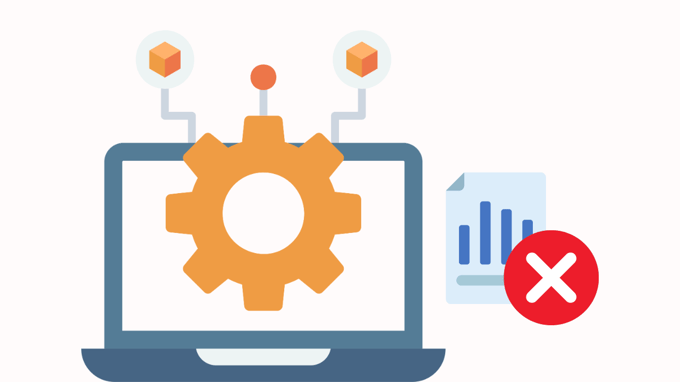A Comprehensive Guide to Benefits and Challenges of CRM
Explore the benefits and challenges of CRM in this comprehensive guide. Gain valuable insights into optimizing customer relationships for business...

Discover the common problems with marketing automation and unlock effective strategies to overcome them.
The dynamic panorama of contemporary marketing requires the origin of marketing automation (MA) to be revolutionized in the way businesses engage with their audiences. This cultivated technology provides its users with a suite of features and proficiency that assures efficiency, accuracy, and adaptability in executing the marketing strategy. Today businesses increasingly use marketing automation to maintain the flow of work processes, increase customer interactions, and make businesses flourish.
Marketing Automation is a lot more than a mere set of tools; this strategic approach enables businesses to provide customized experiences to their users, this way healthier customer relationships can be fostered. However, the application and usage of Marketing Automation have some restraints as well.
Here in this discussion, we will explore the challenges associated with the implementation of marketing automation. Let us have an insightful examination of common issues and the complexities of Marketing Automation. And how can we overcome those marketing challenges to achieve the maximum out of the Marketing Automation process?
Addressing these common challenges requires a comprehensive approach, let's navigate through the common issues regarding marketing automation implementation.
The first and foremost thing is to articulate a comprehensive marketing plan aligning with the business goals.
We should start by understanding our target audience, having concise goals, and outlining the customer lifecycle stages. This well-defined strategy will act as a guiding framework ensuring that the automation tools and work processes are in alignment.
When marketing automation and business strategy do not go hand in hand, this is where issues arise. This misalignment leads to the delivery of irrelevant content, ultimately causing disengagement from customers and damaging the brand's reputation. Moreover, without following a strategic approach, businesses will be overcrowded with useless data that lacks actionable insights, restricting decision-making processes.

Poor data quality and integration can reduce the effectiveness of automated marketing efforts. Without complete and accurate data businesses will lead to flawed insights and misguided automation decisions. Sabotaging the overall impact of marketing campaigns. Inconsistent data sources can lead to a confused and inefficient marketing automation process.
Data quality is critical for creating meaningful and relevant interactions. Complete and accurate data is fundamental for personalized marketing efforts, delivering targeted content, and making lead scoring and nurturing more effective.

Although automation is a powerful tool for seamless processes, the risk of automated campaigns feeling impersonal and detached from the individual requirements and preferences of the users is still there.
A major issue is that it can lead to the generation of generic messages, one-size-fits-all. Plus too much reliance on automation losses of human touch in the marketing campaign. Automation should always enhance the human touch, not replace it. Customers should not feel like they are interacting with a machine rather than a brand that fulfills their unique needs.
Tailored customer experiences can be provided when automation is balanced with personalized content. By combining data insights and client behavior, businesses can align with the individual preferences of users, thus creating a meaningful interaction.
Customization of messages provides a sense of connection and customers feel understood and valued.

Another challenge faced by businesses is inadequate training on marketing automation platforms. Insufficient training restricts the use of diverse features and functions offered by the platforms.
Moreover, it can result in misconfigured workflows and inaccuracies in segmentation as a lack of expertise can reduce the accuracy and proficiency of automated processes.
Skill gaps can diminish campaign effectiveness as inexperienced users may struggle to create targeted campaigns that resonate with the audience. Also, skill gaps existence cause troubleshooting issues and make it challenging to create optimized campaigns.

The dynamic nature of marketing automation requires continuous monitoring and optimization of automated processes.
As the preferences and requirements of clients evolve, they require marketers to change their strategies accordingly.
Although marketing automation platforms regularly introduce updates and new features, failing to stay informed can reduce work efficiency and overall performance.
Businesses have to bear the consequences of neglecting optimization because, without optimization, campaigns will become less efficient over time. This will also reduce the return on investment (ROI) of marketing automation startups. Diminished adaptability towards changing marketing dynamics will lead to Increased churn rates.

As much as marketing automation (MA) enables businesses with advanced abilities, it also whistleblowers about data privacy issues.
Automated processes are bound to handle sensitive customer data. While this may provide leverage for creating customized plans for customers it also risks the exposure of this data to breaches through inadequate security measures.
On top of that, data protection laws, such as in GDPR and CCPA, have imposed strict measures on collecting and processing customer’s personal information. Non-compliance of which can cause heavy fines and brand damage.
Complying with data protection laws shows a commitment to customer privacy. This also builds trust with customers and brands.
As non-compliance has a risk of severe legal consequences, it is also a proactive measure to mitigate risks by understanding and adhering to data protection laws.

This is necessary to understand that targeted communication is only directed to opt-in contacts— which means, individuals who have explicitly given their consent to receive marketing messages.
This permission-based communication ensures that marketing messages are sent to customers who are likely to engage and respond to communication.
Compliance with regulations is important because many data protection regulations, such as GDPR and CAN-SPAM, have made this mandatory that marketing messages be sent only to individuals who have opted in. Non-compliance to laws can lead to legal consequences and a brand's reputation destruction.

Overcoming marketing automation challenges involves cautious and foresighted measures to navigate through the common issues occurring in the implementation and application of Marketing Automation (MA). Here are key considerations for businesses to keep in mind:
It is important to establish a vigilant strategy for winning marketing automation by following these steps:
Defining clear objectives: Clearly define and outline what your target is to attain with marketing automation, this ensures marketing automation alignment with broader business goals.
Audience-oriented: Customized and detailed buyer personas should be created to tailor campaigns based on audience preferences.
Right tools: Now select those marketing automation platforms that align with your marketing strategy and bring forth the necessary features.
Along with above mentioned guidelines emphasizing on alignment of marketing automation with business objectives is necessary. Make sure to regularly review and align your marketing automation strategy with changing business objectives. Also, ensure the direct contribution of automated campaigns to key performance indicators (KPIs).

Here are some best practices for clear and Integrated Data:
Data validation processes: Businesses must implement regular validation and clean and concise data to maintain its accuracy.
Integration solutions: Invest in robust integration tools to sync data across marketing automation platforms for a unified view.
Data management plays a pivotal role in successful marketing automation implementation. Businesses can consolidate data sources to give a panoramic and holistic view of customer interactions. Implementation of such policies which ensures data quality and security and the creation of a centralized data repository can help manage data.
-png.png?width=680&height=383&name=Prioritizing%20Data%20Quality%20and%20Integration%20(2)-png.png)
Let us discuss a few strategies for incorporating personalization and automation into business:
Segmentation: Divide and segment your target audience to deliver more result-oriented and personalized content.
Leverage dynamic content: Incorporation of dynamic elements into message customization based on individual preferences.
Humanize communication: Connecting on an individual level is possible by infusing a human touch in automated messages that resonate with individual recipients.
Analyze data: Data insights are helpful to refine and alter strategies and adapt to evolving customer behaviors.

Here are a few recommendations for training teams on marketing automation platforms:
Hands-on training: Familizing teams with marketing automation tools by providing practical training sessions.
Certification programs: Encourage team members to obtain certifications to enhance their efficiency.
Foster a learning environment: Fostering a culture of continuous learning encourages a mindset of continuous improvement and adaptability among teams.
Stay informed: Regular updation of teams on changes in marketing automation platforms and best practices offered by relevant industries.

Let us see why is it important to monitor and optimize performance analysis:
Regular performance reviews: Businesses must establish a schedule for analysis of the effectiveness of automated campaigns.
Monitor key metrics: Track the KPIs to check the success of campaigns and figure out areas for improvement.
Conduct A/B testing: For making informed adjustments and improvements, experiment with multiple elements to optimize campaign performance.
Data insights: Utilize all real-time data to make informed adjustments, this ensures campaigns remain relevant and proficient.

These are a few best practices for maintaining compliance and securing data:
Data Protection Laws: Stay informed about regulations and update teams regularly on changes in data protection laws like HIPAA.
Consent Management: Implement robust systems to establish, manage, and record opt-in consent from customers.
Prioritize data security: For secure data handling in marketing automation invest in secure data handling practices to protect customer information.
Regular compliance audits: Occasional audits ensure the ongoing compilation of data protection regulations.

Marketing Automation (MA) is a journey with its challenges. To pass these challenges successfully, businesses must look into each issue proactively. Common issues such as no strategy, low data quality, the imbalance between automation and personalization, team training gaps, monitoring lacks, and compliance issues restrain and hinder the efficiency of automated marketing efforts.
The point to ponder is that automated marketing is not a one-time endeavor; this is an ongoing continuous process that requires improvement and adaptation. Businesses must be vigilant while responding to evolution in consumer behavior, technological changes over time, and data regulations. Continually refining and optimizing marketing automation strategies is essential for sustained success in the ever-changing and evolving digital marketing landscape.
Once you acknowledge these challenges and commit to relevant solutions, businesses can utilize the full potential of marketing automation and can deliver customized, impactful, and result-oriented experiences to their audience while fostering growth and efficiency in their marketing solutions.

Explore the benefits and challenges of CRM in this comprehensive guide. Gain valuable insights into optimizing customer relationships for business...

Explore the pivotal role of marketing automation for Manufacturing Businesses in overcoming unique marketing challenges.

Learn the core elements of SaaS Workflow Automation. Find out how automation tools optimize your repetitive tasks and help grow your SaaS business.